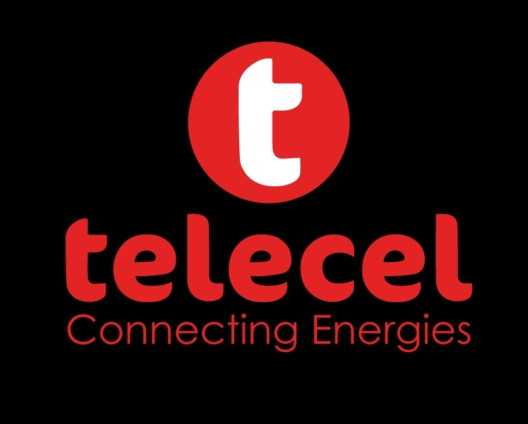The group became the majority shareholder in Vodafone Ghana when it acquired the stake from Vodafone in a transaction that closed in February of this year. An international telecommunications company, Telecel Group’s strategy is centered on expanding throughout Africa and positively disrupting the markets it enters.
Speaking to Mobile World Live, Malek Atrissi, Group Chief Operating Officer highlighted how, in Ghana, Telecel Group has committed not only to maintaining but also substantially improving the quality of the network it has acquired.
In accordance with a significant network expansion strategy devised prior to the acquisition’s completion, this initial phase serves as a testament to the successful execution of its first phase in a remarkably short period. This achievement is the result of close collaboration between Telecel Group and Vodafone Ghana’s local operations.
“The priority was to make a swift and impactful entry” said Atrissi. “This roll-out has been accomplished in record time, underscoring Telecel’s dedication to delivering improved connectivity and exceptional services to Ghanaians while simultaneously disrupting the market. We have set a new benchmark for expeditious network development in Ghana.”
The new sites both extend geographical coverage to new areas and densify or fill gaps in coverage within the capital Accra and other regional centers that were already within our network’s reach.
Since the activation of the new sites, Telecel has witnessed a notable surge in network traffic. Atrissi points out that this surge serves as clear evidence of untapped potential. The rapid increase in traffic speed further underscores the vast opportunities for Vodafone Ghana.
Q3 2023 data from GSMA Intelligence reveals that Vodafone Ghana’s mobile subscriber base of 7.5 million represents a market share of 18.5 per cent and makes the company the second biggest operator in the country. The National Communications Authority (NCA), Ghana’s telecommunications regulator, has determined that the market leader, with a Q3 market share of 68 per cent, has significant market power (SMP). In July this year as part of its efforts to boost competition, the NCA introduced technology neutrality measures that allow non-SMP operators to re-farm their spectrum holdings in the 900 MHz, 1800 MHz and 2100 MHz bands to provided 4G services.
The Vodafone Ghana expansion has taken advantage of this regulatory change to repurpose parts of its 1800 MHz holdings to complement its original 4G allocations in the 800 MHz.
4G+
In another upgrade to the legacy Vodafone Ghana offering, Telecel has deployed 4G+ (LTE Advanced) with its carrier aggregation capabilities in the new cells.
“4G+ provides enhanced download speeds and supports bandwidth-hungry applications such as high-definition and 4K video streaming and gaming. So, in terms of performance, quality of service, download speeds, and use cases, this upgrade to 4G+ provides a major milestone for Vodafone in Ghana,” notes Atrissi.
In parallel to the launch of the expanded coverage Vodafone Ghana has introduced bundled handset and airtime packages to improve access to 4G compatible handsets in a market where 2G-only devices are still commonplace. Elsewhere on the marketing front, Telecel has a team working on the evolution of its brand in Ghana as it only retains access to the Vodafone name until February 2024.
First milestone
Telecel Group sees the completion of this expansion project as just the first milestone in its longer-term strategy. “We have exceeded expectations in the rapid development of these sites, but this is only the beginning of our journey,” says Atrissi.
The group has set the wheels in motion for a series of further expansions aimed at continually amplifying the network’s reach and efficiency. Plans are well advanced to launch a further 2,000 4G sites as well as undertake more widespread upgrades to 4G+ with the aim of improving coverage, capacity in hotspots and the overall availability of 4G services.
Vodafone Ghana already offers fixed and converged services and has historically been the largest provider of fibre-to-the-home (FTTh) and FTTx services. Fixed wireless access (FWA) hasn’t previously been a focus area for the company, but Telecel recognizes that FWA has great potential as a complement to fixed services, especially in newly covered more rural areas.
Further evidence of Telecel’s ambition emerged in April when Vodafone Ghana sealed an agreement with the satellite-to-mobile operator Lynk that will deliver an additional reliable coverage option to its customers across the entire nation. The agreement builds on the pioneering satellite project announced in September 2022 between Telecel and Lynk in the Central African Republic.
Transforming Africa
Telecel’s entry into Ghana builds on the group’s vision to drive substantial growth across Africa; to act as a champion and catalyst for digital transformation and Africa-centred e-commerce and fintech. The group is committed to actively promoting innovation, entrepreneurship, productivity, and sustainability and sees digital innovation as critical to unlocking the continent’s socio-economic promise and boosting Africa’s international trade.
Its Africa Start-up Initiative Program (ASIP) supports start-ups with a mobile tech focus to develop homegrown digital solutions to the continent’s challenges. Offering help with training, resources, and funding, ASIP facilitates pilots and proofs of concept projects that can open the doors for longer term commercialization. With sustainability a top priority, ASIP’s latest cohort includes innovative start-ups in climate-tech, Agri-Tech and green-tech sectors.
“Our commitment remains unwavering as we continue to pinpoint opportunities for network expansion, ensuring that we extend world-class mobile connectivity and its many associated benefits to an ever-growing number of Ghanaians,” concludes Atrissi.
Source: Mobile World Live





